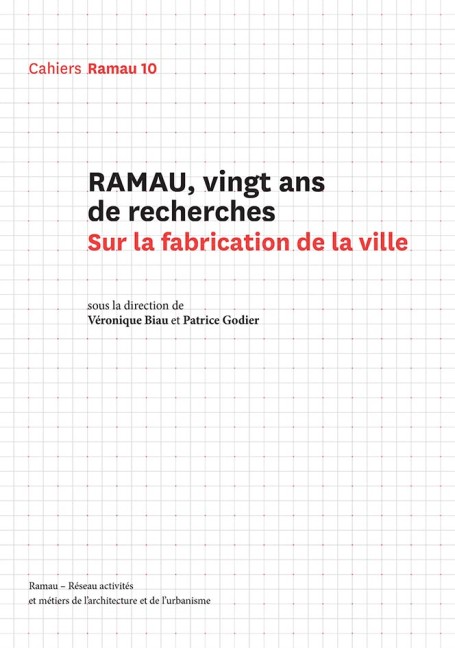Vingt ans de recherche sur l’organisation de projet : l’évolution du regard sur le « bénéficiaire » de l’espace construit
In Cahiers Ramau n°10, Éditions de la Villette, Paris, 2019
En nous intéressant aux opérations architecturales des entreprises et des administrations, et en mettant l’accent sur l’imbrication entre les décisions liées à l’espace et les choix fondamentaux de ces organisations, nous avons voulu élargir la façon dont les travaux de Ramau ont jusqu’ici exploré les relations entre la question des usages et des usagers et celle des organisations de projet : l’irréductibilité d’une partie des intérêts et des responsabilités du bénéficiaire des services dont le bâtiment est le support dans le jeu classique des acteurs du projet architectural en France. Le modèle français de la maîtrise d’ouvrage et de la maîtrise d’œuvre induit un raisonnement sur le bénéficiaire limité à la temporalité du projet et davantage focalisé sur les dimensions constructives de la transformation de l’espace que sur les services attendus. Le choix du terme « bénéficiaire », plutôt que celui de « maître d’usage », procède de la compréhension qu’une réelle prise en considération des préoccupations du bénéficiaire et des actions qui en découlent implique une organisation des dispositifs qui dépasse le cadre du projet.
By focusing on architectural projects undertaken by companies and admin-istrations, and by emphasizing the intertwining between decisions related to space and the fundamental choices of these organizations, we seeked to broaden the way in which Ramau’s work had so far explored the relationship between the question of uses and users and that of project organization : specifically, the irreducible nature of some interests and responsibilities attributed to the beneficiarie of the services that the building supports in the classic stakeholder interplay model in architectural projects in France. The French model comprising notably a contracting authority (maître d’ou-vrage) and a designer (maître d’œuvre) tends to favour conceptualizing the beneficiary within the limits of the project’s timeframe, more focused on the constructive dimensions of transforming space than on the expected services in the long term. The choice of the term “beneficiary”, rather than that of “user-specialist”, stems from understanding that an authentic consideration for the beneficiary’s concerns and for the corresponding actions implies an organisational model that goes beyond the project’s framework.
Mots-clés : Bénéficiaire du cadre bâti et aménagé, usages, organisation de projet, processus de conception, lieux de travail
Keywords : Owner, building in use, project organisation, design process, workspace
Voir en ligne : Lien vers la présentation de l’ouvrage
- Membres du LET
- Autres informations Avec WINCH Graham M.
- Types de publications
- Langue de l’ouvrage
- Projet scientifique du LAVUE
